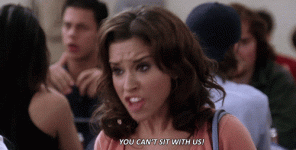
By Dr. Samantha Joplin, Clinical Psychologist
Digital dating has transformed the way individuals seek and form romantic relationships. In the 21st century, dating apps like Tinder, Bumble and Hinge have become the go-to platforms for many in search of love and connection. However, in this digital arena, many are facing an unexpected enemy: unjust bans and a lack of recourse. The stories arising from these experiences are as disheartening as they are alarming.
Let's consider a de-identified case study: A user of Hinge, who, despite being a genuine individual seeking genuine connections, finds themselves abruptly banned from the platform. In the hopes of rectifying what seems to be a mistake, they submit an appeal to Hinge. However, 18 months later, they're still waiting for a response. Their attempts at seeking clarity and a resolution are met with silence.
This case is not an isolated one. Many users report similar experiences, highlighting the lack of transparency and accountability from these platforms.
The Impact of Unfair Bans
Imagine waking up to find that your means of connection to potential partners has suddenly been severed, without justification. The immediate sense of confusion and injustice can be overwhelming. This abrupt cut-off from digital dating platforms can induce feelings synonymous with social isolation. The DSM-5, the current authoritative guide to the diagnosis of mental disorders, cites social isolation as a significant risk factor for a range of mental health issues, including major depressive disorder and anxiety disorders.
Invalidating Experiences
When individuals are unfairly banned, it invalidates their experiences and feelings. Invalidation is when one's thoughts and feelings are rejected or ignored. Over time, this can result in increased self-doubt, diminished self-worth, and a heightened sense of hopelessness. Such experiences can often mirror symptoms seen in conditions like Borderline Personality Disorder, where invalidation during formative years can exacerbate emotional turbulence in adult life.
Coercive Control: A New Avenue
A deeply concerning aspect of these unfair bans is the potential misuse by vindictive ex-partners. By falsely reporting an individual, an ex-partner can exert a sinister form of coercive control. This manipulative tactic aligns with the DSM-5's characterisation of Intimate Partner Violence (IPV) as a pattern of abusive behaviours - physical, psychological, or sexual - used by one partner to maintain power over another. With the proliferation of digital dating, this form of control has found a new avenue: the unjust banning of a former partner's dating profile.
Tinder's Silent Treatment
While Hinge at least has an avenue (albeit an ineffective one) for addressing bans, Tinder provides no such opportunity. Users find themselves thrust into a Kafkaesque reality where they're banned without clear reason and have no platform to question or appeal the decision. It's eerily reminiscent of an episode of "Black Mirror," where technology, instead of being an enabler, becomes a suffocating force.
The absence of clear communication and pathways for appeal isn't just frustrating—it's potentially against consumer laws. Consumers have the right to transparency and fairness. By not providing a clear mechanism for addressing unjust bans, these platforms might be sidelining these rights.
In Conclusion
Digital dating platforms have undeniably revolutionised the way we connect and find partners. However, with this power comes responsibility. It's disappointing that these platforms neglect transparency, accountability, and fairness. For many, the digital dating realm offers hope, connection, and potential love. It's important that individuals are not harshly and permanently excluded from this entire dating sphere unjustly.In conclusion, the psychological implications of unjust bans in the digital dating realm are profound and deserve attention. As a community, by recognising, addressing, and sharing our experiences, we can hope to create safer and more empathetic online spaces.
If you've experienced this, know that your feelings of frustration and invalidation are valid. We would love you to share your stories, raise awareness, and push for the change.
